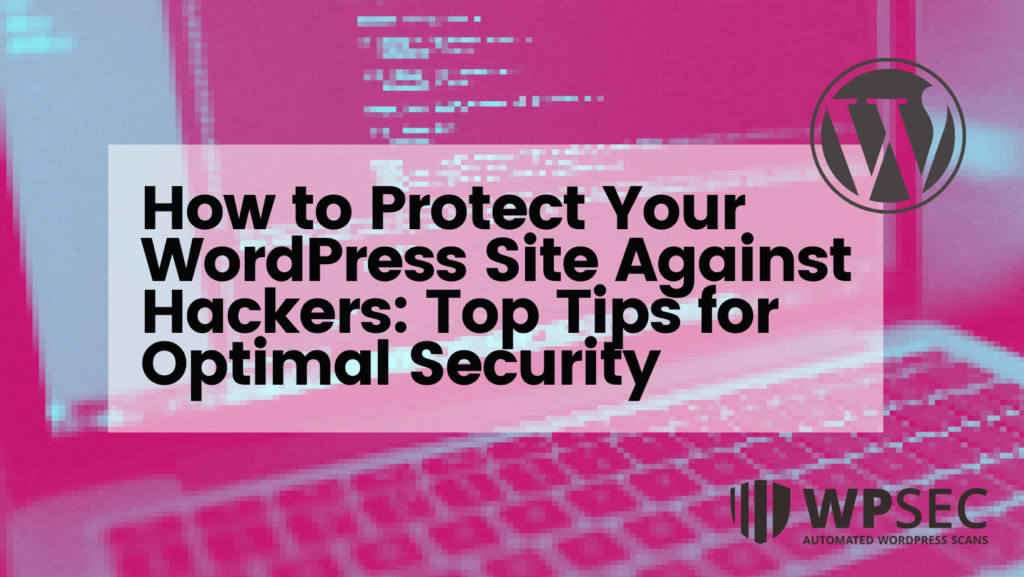
In today’s digital world, website security is more important than ever. WordPress, the most popular content management system (CMS), is often targeted by hackers. Protecting your WordPress site against cyber threats is crucial to safeguard your data, customers, and online reputation. This blog post will share tips to help you secure your WordPress site from hackers and ensure optimal security.
Keep WordPress, Themes, and Plugins Updated
One of the easiest ways to protect your site is by keeping the WordPress core, themes, and plugins up-to-date. Updates often include security patches that fix known vulnerabilities. Ensure to enable automatic updates where possible, and regularly check for new updates to minimize the risk of attacks.
Use Strong, Unique Passwords
Ensure all users on your WordPress site have strong, unique passwords that combine uppercase and lowercase letters, numbers, and special characters. Encourage users to change their passwords regularly and consider using a password manager to store and generate complex passwords securely.
Enable Two-Factor Authentication (2FA)
Adding an extra layer of security to your WordPress login process can significantly reduce the risk of unauthorized access. Implement two-factor authentication (2FA) to require users to verify their identity using an additional method, such as a one-time code sent via SMS or an authentication app.
Install a Security Plugin
There are numerous security plugins available for WordPress that can help you protect your site. These plugins can offer features like malware scanning, firewall protection, login attempt limitations, and more. Some popular security plugins include Wordfence, Sucuri, and iThemes Security.
Regularly Backup Your Site
In the event of a security breach or data loss, having a recent backup of your site can be a lifesaver. Schedule regular backups and store them securely off-site, so you can quickly restore your site if necessary.
Limit Login Attempts
By limiting the number of login attempts allowed, you can protect your site against brute force attacks. Many security plugins offer this feature, or you can use a dedicated plugin like Login LockDown to achieve this.
Choose a Reputable Hosting Provider
Your hosting provider plays a critical role in your site’s security. Opt for a reputable host with a record of providing secure, reliable service. Look for hosting providers that offer features such as SSL certificates, regular backups, and server-level security measures.
Secure the wp-config.php File
The wp-config.php file contains crucial information about your WordPress installation, such as database details and authentication keys. Protect this file by moving it to a non-public folder or adding the following code to your .htaccess file:
<Files wp-config.php> order allow,deny deny from all </Files>
Disable File Editing
WordPress allows file editing via the admin dashboard by default, which hackers could exploit. Disable this feature by adding the following line to your wp-config.php file:
define('DISALLOW_FILE_EDIT', true);
Monitor and Audit Your Site
Reviewing your site’s activity logs can help you detect suspicious behavior or unauthorized access. Use a plugin like WP Security Audit Log or Activity Log to monitor user activity and maintain a record of changes made on your site.
Do continues vulnerability automatic vulnerability scanning with a service like WPSec and also do manual penetration testing.
Conclusion
Protecting your WordPress site against hackers is essential for maintaining a secure online presence. By following these top tips, you can minimize the risk of cyberattacks and ensure your site remains safe and secure.
Website security is ongoing, so keep up-to-date with the latest best practices and be vigilant against new threats.
